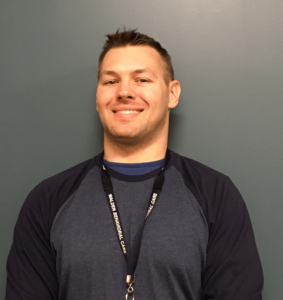 The idea of eating disorder treatment can be frightening. What’s important to know however, is that you’re never alone throughout the process. Your treatment team is dedicated to doing all they can to provide the support you require. A treatment team, typically consists of a comprehensive team of professionals that often includes clinicians, mental health counselors, dietitians, PCPs and even nurses.
The idea of eating disorder treatment can be frightening. What’s important to know however, is that you’re never alone throughout the process. Your treatment team is dedicated to doing all they can to provide the support you require. A treatment team, typically consists of a comprehensive team of professionals that often includes clinicians, mental health counselors, dietitians, PCPs and even nurses.
Nurses? Many people probably don’t consider nurses when they think about the clinical environment that is traditionally synonymous with eating disorder treatment. What many people, who aren’t in the field of eating disorders may not understand, is that eating disorders not only impact the mind, but they can also have detrimental effects on the physical body.
While I often get my fair share of quizzical looks when I share what I do for work, I’d like to let you know about some of the critical ways that a nurse can help support eating disorder recovery
1. Nurses help manage your medications. Medication is frequently part of treatment plans, especially at higher levels of care. While nurse practitioners are the ones to prescribe the medication, nurses walk you through how and when to take the medications, answer questions about side effects, alert you to any specific precautions and instruct you on how to refill prescriptions once you’ve discharged.
2. Nurses can answer any pertinent medical questions. You’ll inevitability encounter your fair share of medical questions throughout the treatment process (e.g. Why do I feel dizzy when I stand up? Why do I suddenly feel weak? Why is my blood sugar chronically low?) Whether you are experiencing orthostatic hypotension, have abnormal lab values or are trying to manage Type 1 diabetes, nursing staff can educate you on these conditions and teach you how to best treat and/or manage them.
3. Nurses can help coordinate care with outpatient medical providers. Nurses collaborate with your outpatient providers by sharing lab results and medical information or helping set up appointments. They can also assist in your transition into lower levels of care, ensuring better continuity as you progress on the road to recovery.
4. Nurses are in frequent communication with your entire treatment team. Nursing works in concert with nurse practitioners, clinicians and dietitians to ensure that if one discipline can’t assist you with a concern, we’ll find somebody who can. For instance, nurses discuss medication regimens and changes in vital signs (among other medical treatment) with nurse practitioners. They also talk about meal plan compliance trends with dietitians and address potential psychiatric concerns with clinicians.
5. Nurses can always lend an ear. Although clinicians conduct official therapy sessions, this doesn’t mean you can’t share any concerns with nurses. While our primary focus is medical care, we can often provide emotional support or simply listen if you want to vent.
Are you curious about eating disorder treatment? Our nurses – and the rest of the team – are here to help.
Sean Jacquet joined Walden in February 2016 as a Registered Nurse in Walden’s Residential Eating Disorder Program. He received his Bachelor of Arts in Journalism from UMASS Amherst (2003) and started his career with GateHouse Media as a sports staff writer for MetroWest Daily News (Framingham, MA) and Daily News Tribune (Waltham, MA) before going back to school and receiving his Bachelor of Science in Nursing from Massachusetts College of Pharmacy and Health Sciences in Worcester, MA (2012). Prior to joining Walden, he was a staff nurse and a Nursing Supervisor in the Arbour system.







